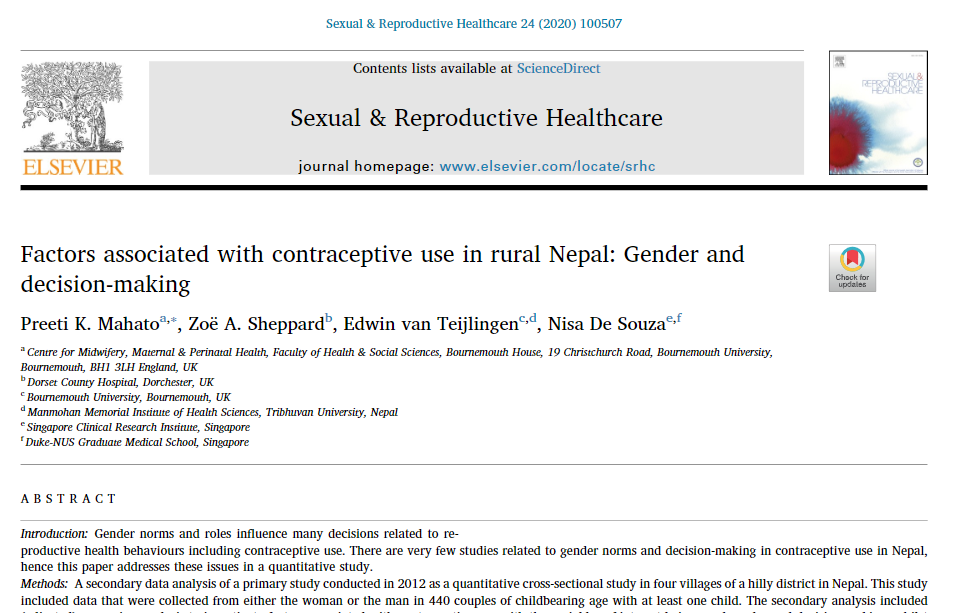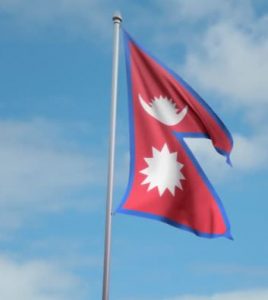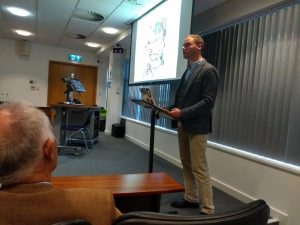Congratulations on the latest paper published yesterday by Dr. Preeti Mahato in the Centre for Midwifery, Maternal & Reproductive Health (CMMPH) and colleagues. This paper ‘Factors associated with contraceptive use in rural Nepal: Gender and decision-making’ [1], is freely available for the next 49 days through our personalized link: click here! 
This research paper in the journal Sexual and Reproductive Healthcare reports on a secondary analysis of pas a quantitative cross-sectional study in four villages of a hilly district in Nepal. This authors found that gender was associated with current/ever use of contraceptives but decision-making was not found associated with current/eve use of contraceptives. And, as perhaps was to be expected, socio-economic factors such as husband’s and wife’s education; and indicators showing sharing of childcare responsibilities were found to be associated with contraceptive use. the paper concludes that educational, health promotional and family planning programmes involving husbands are needed to promote use of contraceptives.
 Preeti’s co-authors are based at Dorset County Hospital in Dorchester, at CMMPH and at Singapore Clinical Research Institute/Duke-NUS Graduate Medical School, Singapore.
Preeti’s co-authors are based at Dorset County Hospital in Dorchester, at CMMPH and at Singapore Clinical Research Institute/Duke-NUS Graduate Medical School, Singapore.
Reference:
- Mahato, P., van Teijlingen, E., De Souza, N., Sheppard, Z. (2020) Factors associated with contraceptive use in rural Nepal: gender and decision-making, Sexual & Reproductive Healthcare 24: 100507 https://doi.org/10.1016/j.srhc.2020.100507














 Dr. Ashraf cited on ‘Modest Fashion’ in The Guardian
Dr. Ashraf cited on ‘Modest Fashion’ in The Guardian NIHR-funded research launches website
NIHR-funded research launches website Academics write for newspaper in Nepal
Academics write for newspaper in Nepal New paper published on disability in women & girls
New paper published on disability in women & girls MSCA Postdoctoral Fellowships 2025 Call
MSCA Postdoctoral Fellowships 2025 Call ERC Advanced Grant 2025 Webinar
ERC Advanced Grant 2025 Webinar Horizon Europe Work Programme 2025 Published
Horizon Europe Work Programme 2025 Published Horizon Europe 2025 Work Programme pre-Published
Horizon Europe 2025 Work Programme pre-Published Update on UKRO services
Update on UKRO services European research project exploring use of ‘virtual twins’ to better manage metabolic associated fatty liver disease
European research project exploring use of ‘virtual twins’ to better manage metabolic associated fatty liver disease